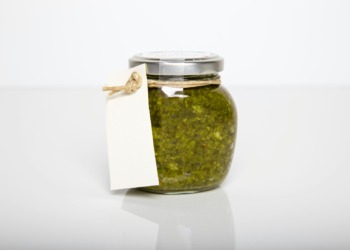The beauty market is overflowing with items from celebrity-owned skincare brands, and it doesn’t appear to be slowing down anytime soon. Famous lines, such as Kylie Cosmetics by Kylie Jenner, Fenty Beauty by Rihanna, Pleasing by Harry Styles, Rare beauty by Selena Gomez and Lady Gaga’s Haus Labs currently dominate the industry.
Now even Brad Pitt has added himself to the list with this new skincare line, “Le Domaine.” The buzz surrounding the brand? It claims to treat aging skin like fine wine, themed on the wine barrel toppers that cap the brand’s serum bottles and jars. It is a collaboration between the actor and organic wine farmers the Perrin family, ranging in price from $130 to $600.
With these hefty price tags, consumers and dermatologists alike have to wonder: is this just another celeb-faced cash grab, or is it a new era of the beauty industry to anticipate?

Here’s what you should know about Le Domaine

With a pair of proprietary, patented active compounds, Le Domaine claims to have uncorked the secret to reducing aging. GSM10, found in serums and creams, is made partly from grenache seeds and syrah seeds. According to the line’s website, these components work to prevent collagen degradation, offer antioxidant effects and balance the skin.
ProGR3, “the cosmetic active compound” found in some of the products, is supposed to minimize visible indications of aging by utilizing natural chemicals in plant extracts, vine cuttings, chamomile and green tea.
Despite the line’s claims of elegant aging benefits, Pitt disputed the notion of “stopping the clock” in an interview.
“I don’t want to be running from aging,” Brad Pitt told Vogue. “It’s a concept we can’t get away from, and I’d like to see our culture embrace it a little more, talk about it in those terms.”
Dr. Viktoryia Kazlouskaya of Khrom Dermatology in Brooklyn, N.Y. shared in an Instagram post that approaches to physical symptoms of aging are as diverse as wine tastes. While some may feel young on the inside and want their looks to reflect it, others value lines and wrinkles as indicators of a well-lived life.
Kazlouskaya further explained, “Either technique reflects the manifestation of the true self.”
Since authenticity implies different things to different people, “There is no shame in wanting to match the inner energy with the outside energy, and anti-aging methods will be with us for many years to come.”
Is Le Domaine the new era of luxe beauty?

Kazlouskaya recognised the excitement surrounding the new collection from a consumer’s point of view.
“On an emotional level,” she said, “I can already envision myself receiving this wonderfully designed box containing a classy-looking jar with a huge oak wood cover.”
From a dermatologist’s perspective, Kazlouskaya took a step back and examined the whole picture, particularly the evidence behind the chemicals. This is where she wasn’t too convinced of the new line’s alleged benefits. She expressed several questions that the brand needs to answer.
Is it okay for sensitive skin? How does it compare to retinoids and other chemicals that are proven to reduce signs of aging? Is it worth the price tag? Where is the published clinical research to back up the credibility of these products? How are the natural components better than scientific synthetic ones in better-known products?
Dr. Emily Wood, board dermatologist at Westlake Dermatology in Austin, Texas, shared a similar idea. Although she adored the sophisticated packaging made from recyclable materials, she cannot rate a product just on its chic repurposed wine barrel cover.
While data exists to support plant-based methods of deriving polyphenols to reduce aging, Wood explained, “More research is needed to determine the efficacy of topical polyphenols and the vehicles by which these molecules will successfully permeate the epidermis.”
So, is 300 bucks for a facial cream worth it? Joyce de Lemos, the Instagram-famous cosmetic chemist, said the only way to clarify this is to look at the evidence.
“As a consumer, I look for evidence that a thing works,” de Lemos continued. If I look at a brand like Murad, Perricone MD or SkinMedica that puts forth the effort to produce clinical testing and offers me evidence that their product actually works, then I know I’m buying something that the firm invested money into proving.”
The lesson learned? Before you purchase super-luxe goods thanks to a handsome face or a household name, do your homework. A reputable brand will usually be ready and willing to demonstrate that their products work, unlike the current claims surrounding Le Domaine.
Editor’s Note: The opinions expressed here by the authors are their own, not those of Impakter.com — In the Featured Photo: Brad Pitt with a box of some of his new products from Le Domaine. Featured Photo Credit: Le Domaine


![[Image description: Brad Pitt sitting at a table in a green field.] Via le-domaine-skincare.myshopify.com]](https://impakter.com/wp-content/uploads/2022/11/GENESIS_1070x-750x375.webp)







